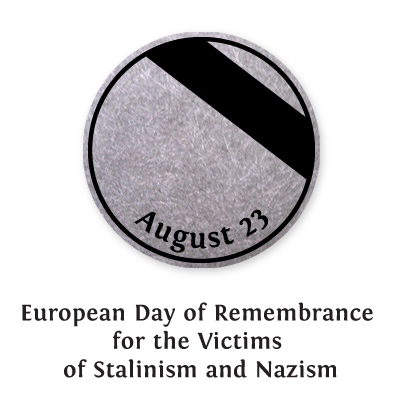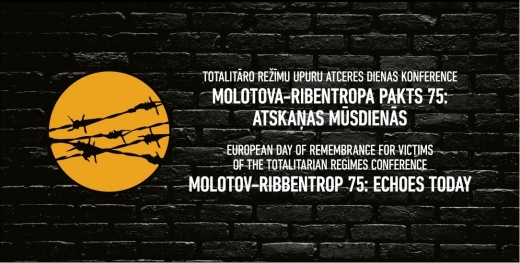A presentation by Jan Rydel, delivered during the main commemoration of European Day of Remembrance for Victims of Stalinism and Nazism in Riga, at the conference “Molotov-Ribbentrop pact 75: Echoes today.”
Dear Minister!
Dear Ambassadors!
Dear Mayor!
Dear Ladies and Gentleman!
On the 23rd of August 1939 there was no drastic increase in the persecution of the Jews in the Third Reich, nor can we observe any change in the pace of the gruesome work done in Dachau, Sachsenhausen, and Buchenwald. Nothing out of the ordinary happened in the ‘Gulag Archipelago’ either. One can even suspect that with the ending of the Great Purge, the people of the Soviet Union could have even felt a kind of a relief. By all accounts, then, this was an uneventful day, except for the fact that two foreign ministers met in Moscow to sign a rather short bilateral agreement.
And yet I believe that the choice of this day as the date for the commemoration of the European Day of Remembrance for the Victims of Stalinism and Nazism is most appropriate. This agreement, the Ribbentrop-Molotov Pact, also known as Hitler-Stalin Pact, was soon to create the geopolitical framework for the tragedies that took place in Central and Eastern Europe.
The Pact created the right conditions for the racial obsessions to develop into the unprecedented mass murder of European Jews - the Holocaust. Were it not for the Hitler-Stalin Pact, a large number of Jews would have been outside of the grasp of Nazi murderers and collaboration with them would have been much more limited than it was. Were it not for the Pact, it would have been far more difficult to hide the crimes of mass murder and Holocaust from Western Europe and the German public; many lives could have been saved. Only after the Ribbentrop-Molotov Pact could nations recognized by the international community be erased from maps and annexed. Only after the Pact’s signing could such crimes as Katyn and other mass murders take place. This Pact gave the perpetrators the feeling of being all powerful, and it was this which inevitably led to the genocidal deportations of whole nations or entire communities.
The signing of the Ribbentrop-Molotov Pact was thus an important - though obviously not sufficient - step toward the tragedy of the Central and Eastern Europeans that unravelled and took on the shape and form that it did.. It was – to use a mythological allegory - the opening of Pandora’s Box in the 20th century.
This year, for the fourth time, we commemorate the European Day of Remembrance for the Victims of Stalinism and Nazism, this time in beautiful Riga. We are not here to discuss which totalitarianism was worse, or to compare the victim counts of each regime. Rather, we are here to remember each of the victims of Nazis and Stalinism in Europe, and also to remind ourselves, and the public at large, how great but fragile a treasure peace and international order based on freedom and democracy is.
On this very day 25 years ago, the Baltic States, while still under the rule of Soviet Union, undertook an extraordinary, grassroots initiative to create a human chain stretching across three neighboring countries. Hand in hand, Lithuanians, Latvians and Estonians expressed not only their desire for independence but also their solidarity and unity one other.
The need for solidarity and for Europeans to work together is not a thing of the past. We are reminded of this in each and every newspaper and newsreel that tells us of the situation in Ukraine.
Unfortunately, the European Day of Remembrance for the Victims of Stalinism and Nazism remains a date unknown to many Europeans. At our institution, the European Network of Remembrance and Solidarity - which this year has expanded to include Romania - we believe that the official commemorations of the 23rd of August should be accompanied by large public information campaigns to build an understanding and appreciation amongst Europeans of the significance of this date. This is why in many European countries, we propose that we wear this black ribbon with “August 23rd” written across the front. You will find such a lapel pin in your materials.
 I encourage you all to wear this pin, a small symbol of remembrance for the victims of totalitarianisms. I also invite all people and institutions to cooperate with the European Network of Remembrance and Solidarity to strengthen our remembrance of our common past.
I encourage you all to wear this pin, a small symbol of remembrance for the victims of totalitarianisms. I also invite all people and institutions to cooperate with the European Network of Remembrance and Solidarity to strengthen our remembrance of our common past.
Prof. Jan Rydel
